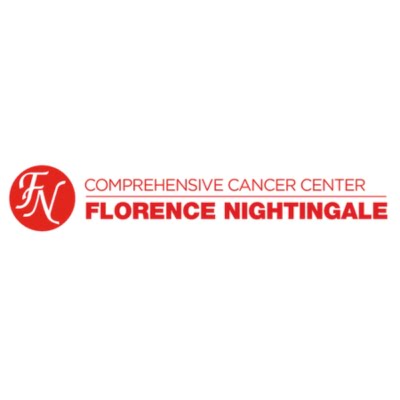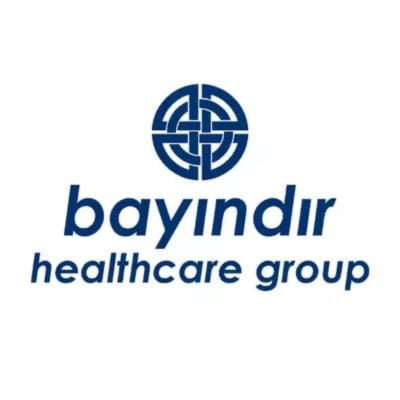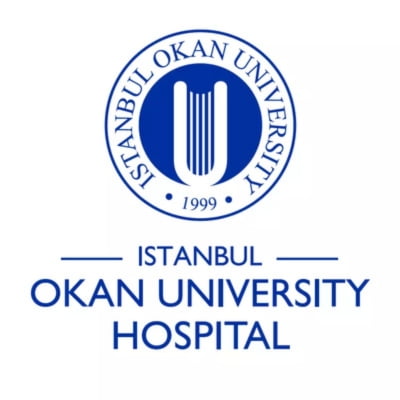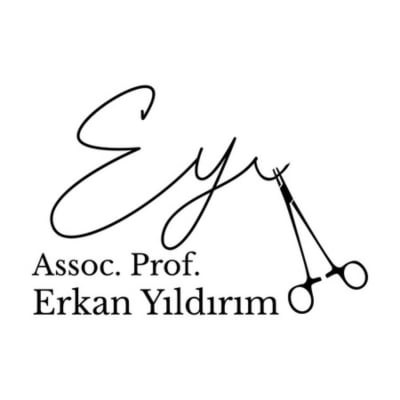Prostate cancer is a serious health concern that affects many men worldwide. Understanding the options for treatment is crucial for those diagnosed with this condition. In Turkey, there are various hospitals and medical centers offering different treatments for prostate cancer. This article aims to provide a simple guide to navigating prostate cancer treatment in Turkey.
We’ll explore the different options available, the advancements in medical technology, and the support systems in place for patients and their families. Whether you’re newly diagnosed or seeking information for a loved one, this guide will help you understand what to expect and how to access the care you need.
Table of Contents
Understanding Prostate Cancer
Prostate cancer is a type of cancer that develops in the prostate gland, which is a part of the male reproductive system. The prostate gland is located just below the bladder and in front of the rectum. It produces seminal fluid, which nourishes and transports sperm.
Here are some key points to understand about prostate cancer:
Risk Factors: Age is the primary risk factor for prostate cancer, with the majority of cases occurring in men over the age of 50. Other risk factors include family history (having a close relative with prostate cancer), race (African-American men have a higher risk), and certain genetic factors.
Symptoms: In its early stages, prostate cancer may not cause any symptoms. However, as the cancer progresses, symptoms may include difficulty urinating, weak or interrupted urine flow, blood in the urine or semen, erectile dysfunction, pain or discomfort in the pelvic area, and bone pain.
Screening: Prostate-specific antigen (PSA) testing and digital rectal examination (DRE) are commonly used for prostate cancer screening. PSA is a protein produced by the prostate gland, and elevated levels may indicate the presence of prostate cancer or other prostate conditions. However, PSA testing has limitations, and its use in screening is controversial due to concerns about overdiagnosis and overtreatment.
Diagnosis: If prostate cancer is suspected based on screening results or symptoms, further diagnostic tests such as biopsy, imaging studies (like MRI or CT scans), and possibly genetic testing may be performed to confirm the diagnosis and determine the extent of the cancer.
Treatment Options for Prostate Cancer in Turkey
In Turkey, the treatment options for prostate cancer are similar to those available in many other countries and may include the following:
- Active Surveillance: For low-risk prostate cancer, active surveillance may be recommended. This involves regular monitoring of the cancer through PSA tests, digital rectal exams, and possibly imaging studies, with the goal of avoiding or delaying active treatment unless the cancer progresses.
- Surgery: Radical prostatectomy is a surgical procedure to remove the prostate gland and surrounding tissue. It is often recommended for localized prostate cancer, particularly in younger, healthier patients. Minimally invasive techniques such as robotic-assisted surgery may be used to perform the procedure, which can result in faster recovery times and fewer complications.
- Radiation Therapy: Radiation therapy uses high-energy beams to destroy cancer cells. It can be delivered externally using a machine that directs radiation beams at the prostate (external beam radiation therapy) or internally by placing radioactive seeds directly into the prostate (brachytherapy). Radiation therapy may be used as the primary treatment for localized prostate cancer or in combination with other treatments for more advanced disease.
- Hormone Therapy: Also known as androgen deprivation therapy (ADT), hormone therapy works by reducing the levels of male hormones (androgens) in the body, which can help slow the growth of prostate cancer cells. Hormone therapy may be used alone for advanced or metastatic prostate cancer or in combination with other treatments such as radiation therapy or surgery.
- Chemotherapy: Chemotherapy uses drugs to kill cancer cells or stop them from growing. It may be recommended for advanced or metastatic prostate cancer that has become resistant to hormone therapy.
- Immunotherapy: Immunotherapy is a type of treatment that stimulates the body’s immune system to recognize and attack cancer cells. It may be used in certain cases of advanced prostate cancer, particularly in patients whose cancer has spread to other parts of the body.
- Targeted Therapy: Targeted therapy drugs are designed to target specific molecules or pathways involved in cancer cell growth and survival. These drugs may be used in combination with other treatments for advanced prostate cancer.
Best Cancer Hospitals for Prostate Cancer in Turkey
Turkey has several renowned hospitals and medical centers that specialize in cancer treatment, offering advanced facilities, expert medical professionals, and comprehensive care. Here’s a brief overview of some of the top cancer hospitals in Turkey:
Florence Comprehensive Cancer Center in Istanbul, Turkey
Florence Comprehensive Cancer Center, located within the Florence Nightingale Hospital in Istanbul, is renowned for its multidisciplinary approach to cancer care. The center offers state-of-the-art diagnostic and treatment services for various types of cancer, including prostate cancer.
Their team of experienced oncologists, surgeons, radiologists, and other specialists work together to provide personalized treatment plans tailored to each patient’s needs.

Bayındır Healthcare Group in Ankara, Turkey
Bayındır Healthcare Group is a leading healthcare provider in Turkey with multiple hospitals and medical centers across the country, including in Ankara. The group is known for its excellence in cancer care, offering comprehensive services for prostate cancer and other malignancies.
Their team of oncologists and urologists collaborate closely to provide patients with the latest treatment options, including surgery, radiation therapy, hormone therapy, and chemotherapy.

Istanbul Okan University Hospital in Istanbul, Turkey
Istanbul Okan University Hospital is a prominent healthcare institution located in Istanbul, known for its advanced medical facilities and expertise in various specialties, including oncology.
The hospital’s oncology department is equipped with cutting-edge technology and staffed by highly skilled professionals who specialize in the diagnosis and treatment of prostate cancer.

Bellaten Health Ltd Co in Istanbul, Turkey
Bellaten Health Ltd Co is a healthcare company based in Istanbul, Turkey, dedicated to providing high-quality medical services, including cancer care. The company operates modern medical facilities equipped with state-of-the-art technology and staffed by experienced healthcare professionals.
Their cancer treatment centers offer comprehensive care for prostate cancer, utilizing a multidisciplinary approach to develop personalized treatment plans for each patient.

Procedure of Prostate Cancer Treatment in Turkey
The procedure for prostate cancer treatment in Turkey typically involves several steps:
Diagnosis: The process begins with a thorough evaluation, including a physical examination, prostate-specific antigen (PSA) blood test, and possibly a biopsy to confirm the presence of cancerous cells in the prostate gland.
Treatment Planning: After diagnosis, the medical team develops a personalized treatment plan based on factors such as the stage of the cancer, the patient’s overall health, and their preferences. Treatment options may include surgery, radiation therapy, hormone therapy, chemotherapy, immunotherapy, or a combination of these approaches.
Treatment: The chosen treatment is administered according to the individual’s treatment plan. This may involve surgery to remove the prostate gland (radical prostatectomy), radiation therapy to target cancer cells, hormone therapy to reduce hormone levels that fuel cancer growth, chemotherapy to kill cancer cells, immunotherapy to boost the body’s immune response against cancer, or a combination of these treatments.
Follow-up Care: After completing the initial treatment, patients undergo regular follow-up appointments to monitor their progress and assess the effectiveness of treatment. Follow-up care may include PSA tests, imaging studies, physical examinations, and discussions about any ongoing symptoms or side effects.
Supportive Care: Throughout the treatment process, patients receive supportive care to help manage side effects, alleviate symptoms, and improve their quality of life. This may include pain management, nutritional support, counseling, and access to support groups or survivorship programs.
Why Choose Turkey for Prostate Cancer Treatment?
Choosing Turkey for prostate cancer treatment offers several advantages:
Advanced Medical Facilities: Turkey boasts modern hospitals and cancer treatment centers equipped with state-of-the-art technology and facilities for diagnosing and treating prostate cancer. These facilities adhere to international standards and guidelines, ensuring high-quality care.
Experienced Medical Professionals: Turkey is home to highly skilled oncologists, urologists, radiation oncologists, and other specialists with extensive experience in diagnosing and treating prostate cancer. Many physicians in Turkey have received training and education from prestigious institutions around the world.
Multidisciplinary Approach: Prostate cancer treatment in Turkey typically involves a multidisciplinary team of healthcare professionals, including oncologists, surgeons, radiologists, pathologists, and support staff. This collaborative approach ensures that patients receive comprehensive care tailored to their individual needs.
Affordability: Compared to many Western countries, the cost of prostate cancer treatment in Turkey is often more affordable, making it an attractive option for international patients seeking high-quality care at a lower cost.
Minimal Waiting Times: Turkey’s healthcare system generally offers shorter waiting times for consultations, diagnostic tests, and treatment procedures compared to some other countries. This can be particularly beneficial for patients who need prompt medical attention.
Tourism Opportunities: Turkey is a beautiful country with rich history, diverse culture, and stunning landscapes. Patients and their families can combine their medical trip with leisure activities, exploring tourist attractions and enjoying Turkish hospitality.
Ease of Travel: Turkey is well-connected to major cities around the world, with several international airports and efficient transportation networks. This makes it convenient for patients traveling from abroad to access medical care in Turkey.
Language Accessibility: Many healthcare providers and staff in Turkey speak English and other languages, facilitating communication with international patients and ensuring that they feel comfortable and well-informed throughout their treatment journey.
Ready to explore top-notch prostate cancer treatment options in Turkey? Contact us today to connect with leading medical facilities and experienced healthcare professionals who can provide personalized care tailored to your needs.







